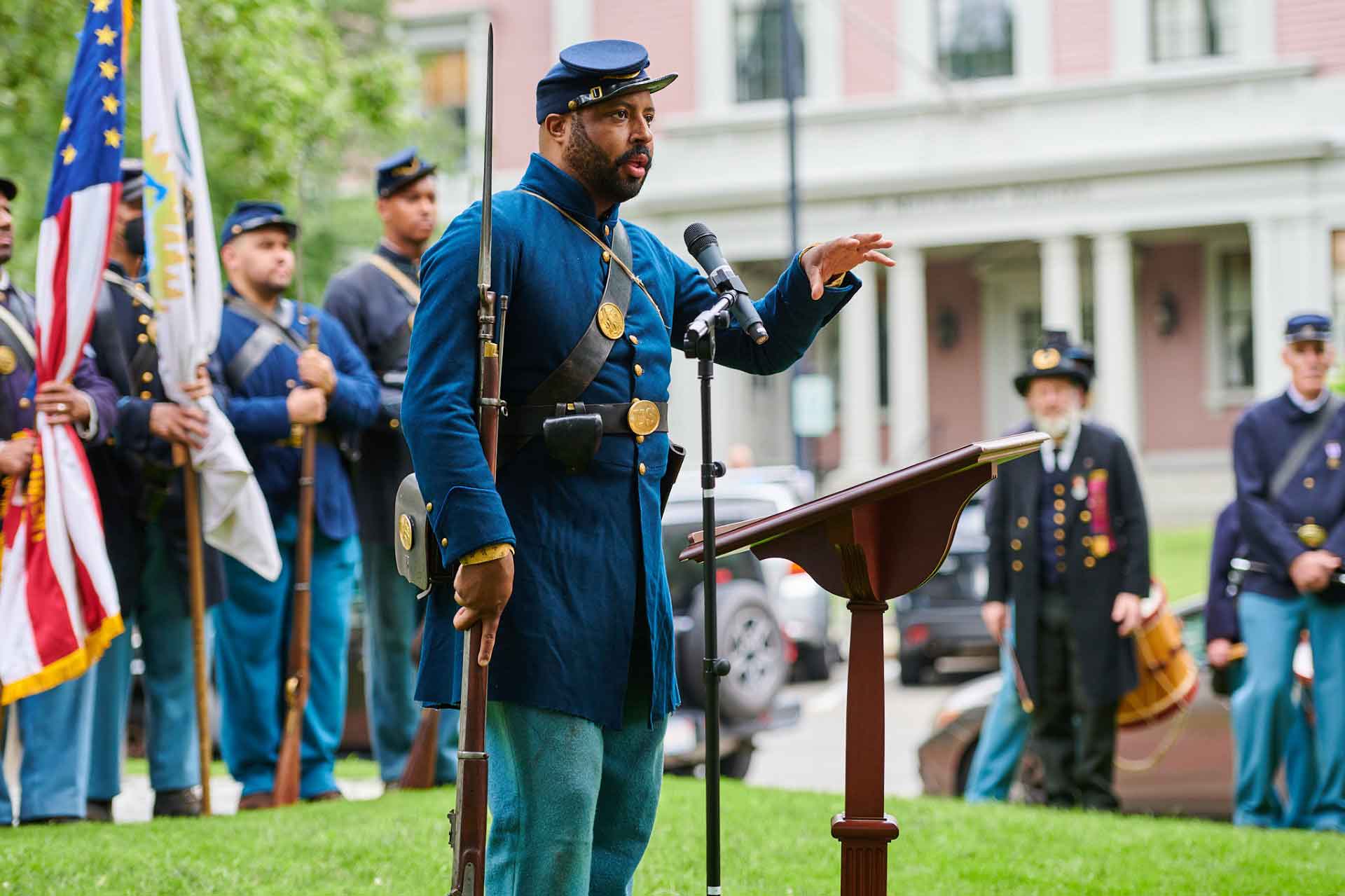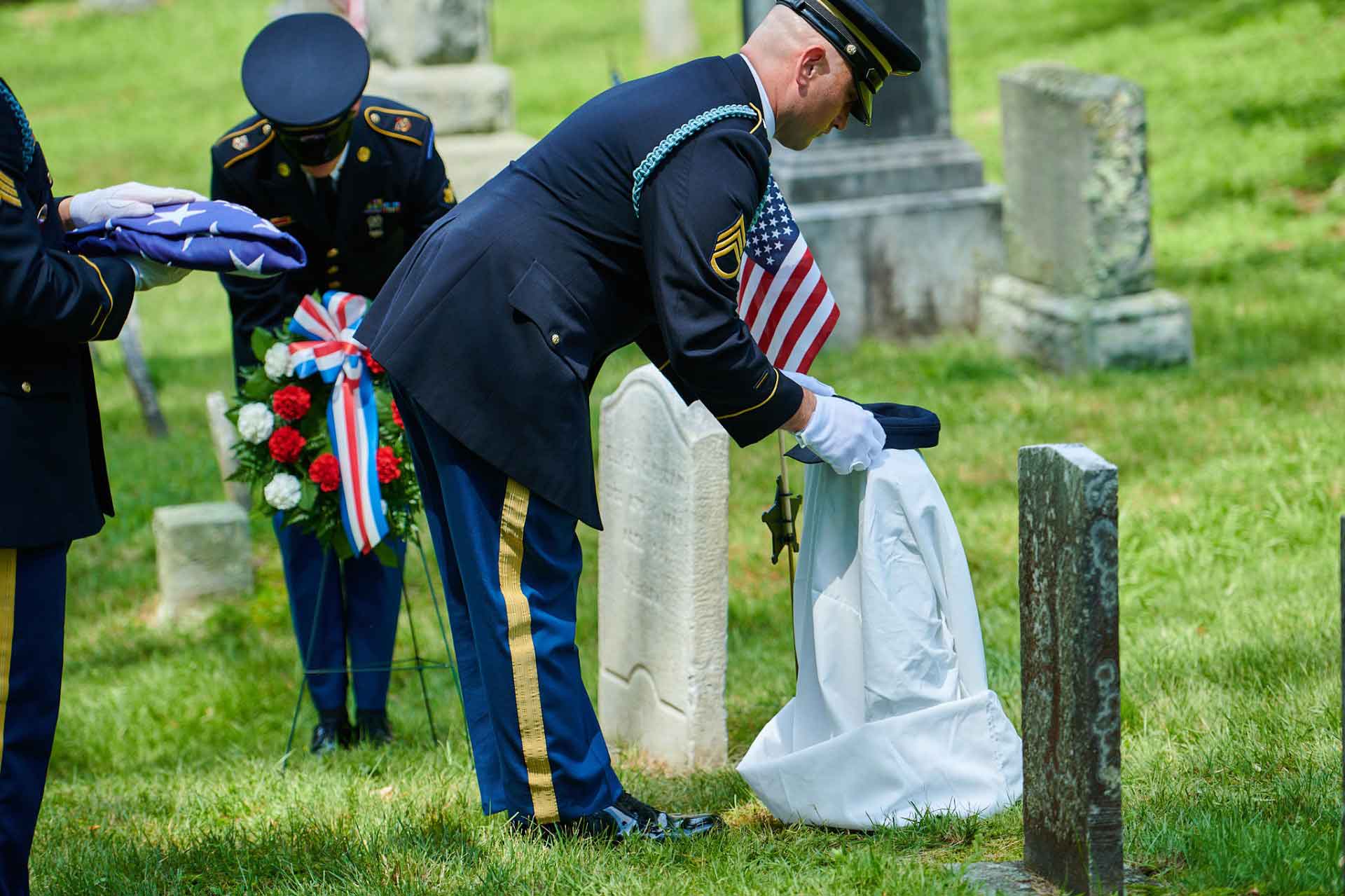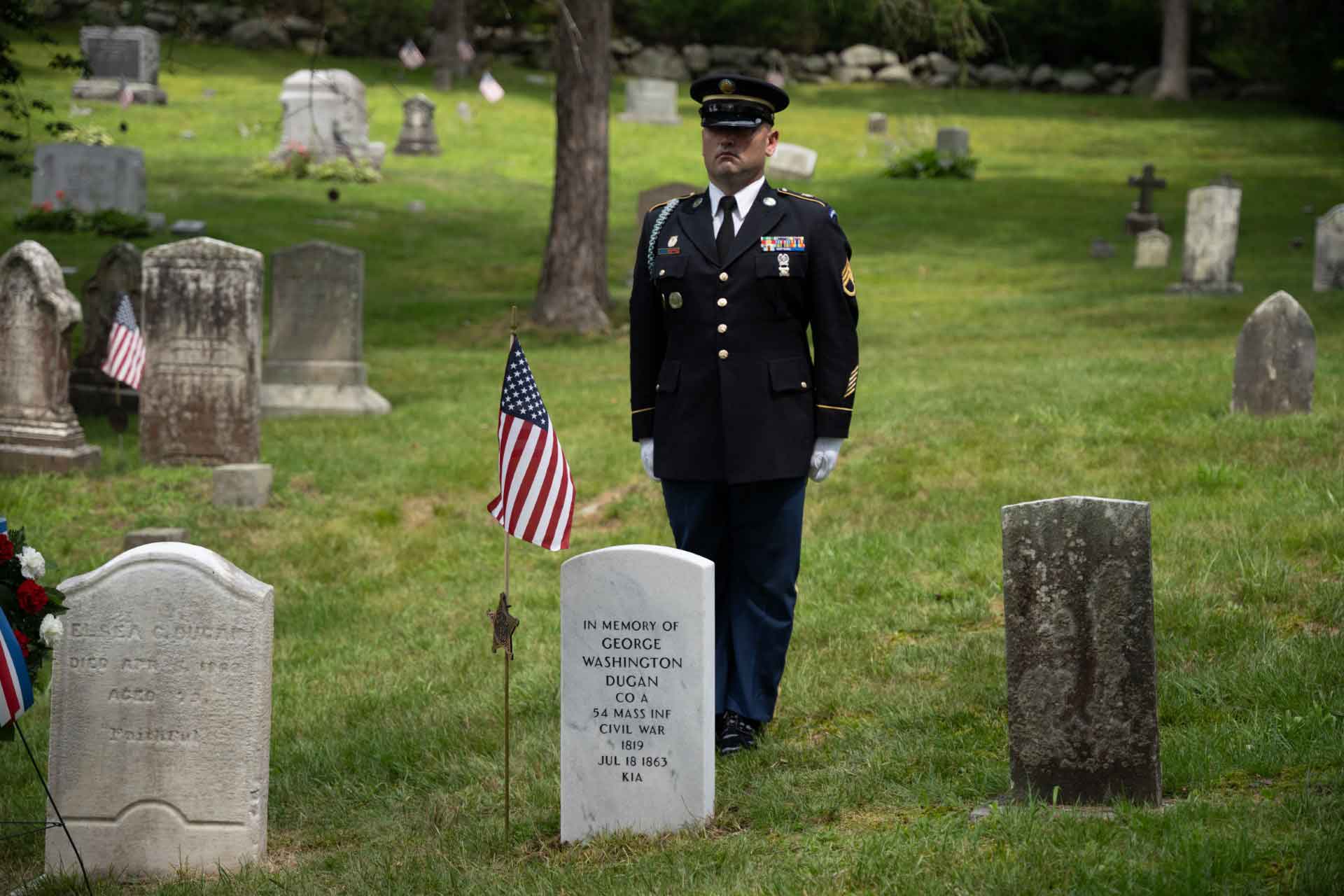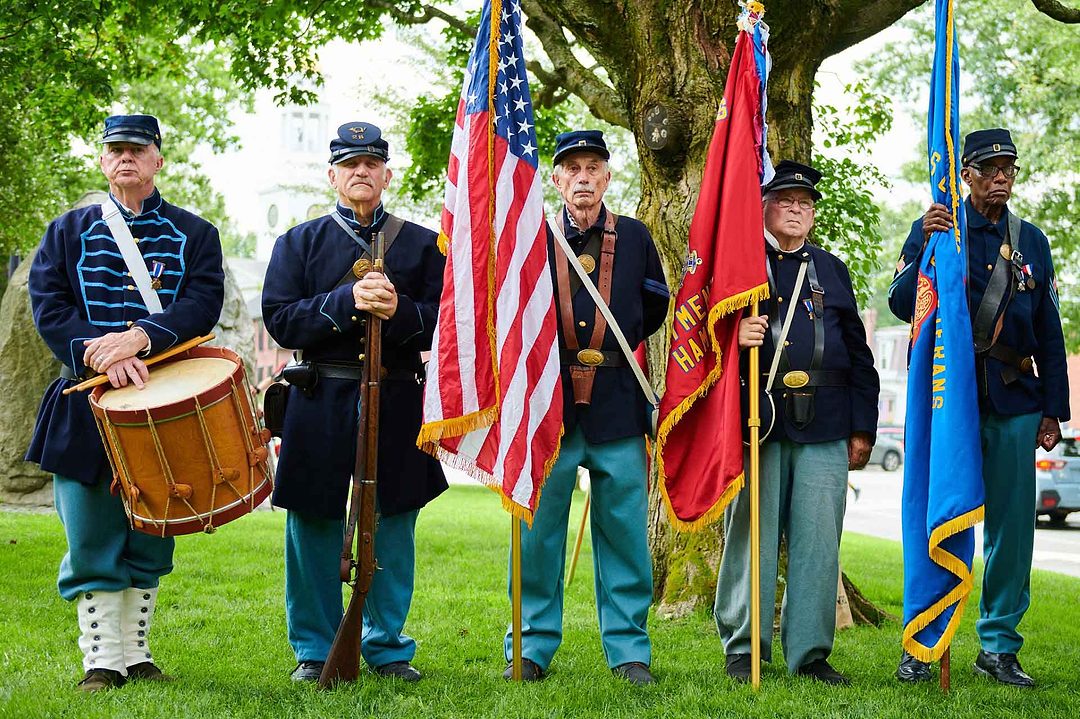For many years, the focus of Concord’s cultural heritage has focused on the “minutemen and muskets” involved in the early fight for American democracy, as well as the literary greats that influenced the Transcendentalist movement. Busts and paintings of Emerson, Thoreau, and Hawthorne abound. But what of the other stories that were so critical to creating the unique town that is Concord? Many do not know about the important contributions of Concord’s black population, the indigenous people who lived here long before the English settlers, the stories of the brave women and children who shared their experiences in the first battles of the Revolution, or the many contributions of people of color who have been part of this community from its very inception.
This is starting to change. This year, for the first time in 160 years, the town paused to honor and celebrate the story of its Black native son, George Washington Dugan.
 ©Edward Feather Photography
©Edward Feather PhotographyDubbed “GLORY for George,” this celebration engaged visitors and locals alike to honor the legacy of George Washington Dugan on the 160th anniversary of his heroic sacrifice as a member of the 54th Massachusetts, the first all-Black regiment of the Civil War.
George was born in Concord and spent his life here. His father, Thomas Dugan, a self-emancipated enslaved person from Virginia, had made his way to Concord and lived here as a farmer introducing the innovation of the Rye Cradle to local residents. George worked at the Middlesex Hotel in Concord center. He was also a farmer, owned land, and paid taxes. Despite the backdrop of the 1857 Dred Scott Decision, which denied equal rights to black citizens, George was moved to volunteer to serve in the first all-Black regiment of the Union Army, the 54th Massachusetts. When he volunteered on February 20, 1863, the 40-year -old widower George Dugan was one of the two oldest men in Company A.
 ©Edward Feather Photography
©Edward Feather PhotographyThe 54th Massachusetts Volunteer Infantry Regiment was one of the first Black regiments to serve in the U. S. Civil War. Prior to 1863, no concerted effort was made to recruit Black troops as Union soldiers. The adoption of the Emancipation Proclamation in December of 1862 provided the impetus for the recruitment of free Black men as soldiers and, at a time when state governors were responsible for the raising of regiments for federal service, Massachusetts responded with the formation of the Fifty-fourth Regiment.
The formation of the regiment was a matter of controversy and public attention from its inception. Questions were raised as to Black men’s ability to fight. Although Massachusetts Governor John A. Andrew believed that Black men were capable of leadership, others felt that commissioning them as officers was simply too controversial. The decision was made to maintain white officers, even as they enlisted black men to serve.
Any Black officers up to the rank of lieutenant were non-commissioned and reached their positions by moving up through the ranks. On May 28, 1863, upon the presentation of the unit’s colors by the governor and a parade through the streets of Boston, spectators lined the streets with the hopes of viewing this experimental unit. The regiment then departed Boston for the coast of South Carolina, where they fought at Battery Wagner as memorialized in the film Glory.
 ©Edward Feather Photography
©Edward Feather PhotographyAlong with most of the 54th Massachusetts, George lost his life in the battle at Fort Wagner that summer and never returned to his hometown of Concord.
The valiant efforts of those men were credited with inspiring more than 180,000 Black soldiers to enlist in the Union Army – a boost in manpower and morale that President Lincoln credited with turning the tide of the war towards victory and, ultimately, eradicating slavery throughout the United States.
Even with this storied history behind it, Concord has never formally recognized its native son. George’s body was never recovered, and he was originally listed as “missing in action” rather than killed in battle. This technicality kept his name from being listed on the town’s Civil War Monument This omission was righted 160 years later, in an emotional ceremony and celebration that included citizens of the Town, visitors, and military units from across the country who joined in providing formal military honors for George with the placing of a cenotaph at Sleepy Hollow Cemetery.
 ©Edward Feather Photography
©Edward Feather PhotographyHistorian Marvin Alonso Greer spoke on the history of George Dugan’s contribution as well as the role that Black soldiers played in the Civil War. Black soldiers, in general, were not paid equally to their white peers, and George Washington Dugan was never paid any amount for his service in the war. Nonetheless, Greer described George as “a man who fought for a country that did not fight for him.” Indeed, George risked everything for a town and a nation that would wait 160 years to fully acknowledge his ultimate sacrifice.
As our country wrestles with a more complicated yet complete understanding of its past, places like Concord can be at the forefront of sharing that history with the public and ourselves. In the middle of a wider conversation about race, justice, the mistreatment of indigenous peoples, and the legacy of enslavement in the United States, Concord must continue reckoning with its own part in that history.
This memorial to George allows for public visibility and exposure – and a chance to learn about and honor a history that may be new to some but is essential to our collective understanding of Concord’s role in securing freedom for all people.


